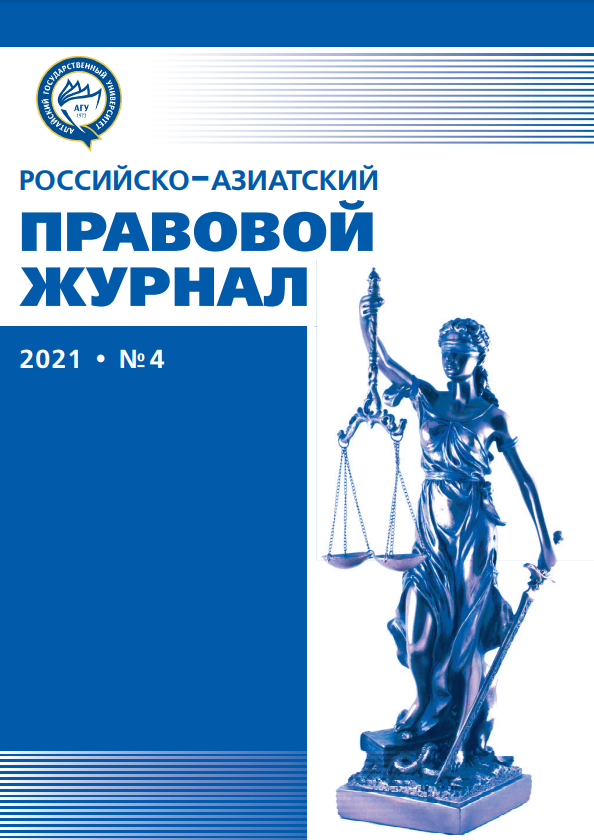INVESTIGATIVE SITUATIONS OF INTERROGATION OF A VIOLENT CRIMINAL DEFENDANT
УДК 343.98 ББК 67.52
Abstract
The article examines the problems of the tactics of interrogating the defendant when the court considerscriminal cases of violent crimes against the person. The urgency of such a study is substantiated. Theimportance of the interrogation of the defendant in the establishment by the court of the circumstances ofthe criminal event in question is noted. Typical situations of judicial investigation are determined, dependingon the position of the defendant. The differences of such situations from investigative situations emerging atthe stage of preliminary investigation are revealed. The features of investigative situations of interrogation ofthe defendant, their significance for the construction of the tactics of the judicial investigation are considered.The peculiarities of the formation of the testimony of the defendant during the judicial examination ofcriminal cases of violent crimes, the factors influencing their formation are revealed. Highlighted the typicalversions put forward by the defense when the court is considering criminal cases of violent crimes. Tacticalrecommendations for organizing the interrogation of the defendant are formulated, the circumstancesthat require clarification during interrogation are indicated, tactical techniques that can be used by theprosecution to ensure the effectiveness of the interrogation are determined.
Downloads
References
Кореневский Ю.В. Криминалистика для судебного следствия. М. : Центр ЮрИнфоР, 2001.
Грибунов О.П., Ишигеев В.С. Актуальные вопросы теории и практики раскрытия
и расследования серийных убийств // Российский следователь. 2018. №9. С. 3–8.
Доспулов Г.Г. Психология допроса на предварительном следствии. М. : Юридическая литература, 1976.
Корчагин А.Ю. О структуре криминалистической методики судебного разбирательства уголовных дел // Российская юстиция. 2015. №1. С. 24–26.
Усманов У.А. Тактика допроса на предварительном следствии. М. : ПРИОР, 2001.
Korchagin A.A.., Bespechniy O.V., & Sokolov A.S. (2019). Forensic characterization of the judicial investigation: the concept and meaning // Proceedings of ICSDCBR 2019: The International Conference on Sustainable Development of Cross-Border Regions: Economic, Social and Security Challenges (P. 570–573). Paris: Atlantis Press, 2019. https:// doi.org/ 10.2991 /icsdcbr — 19.2019.129.
Russian-Asian Law Journal is a golden publisher, as we allow self-archiving, but most importantly we are fully transparent about your rights.
Authors may present and discuss their findings ahead of publication: at scientific conferences, on preprint servers, in public databases, and in blogs, wikis, tweets, and other informal communication channels.
Russian-Asian Law Journal allows authors to deposit manuscripts (currently under review or those for intended submission) in non-commercial, pre-print servers such as ArXiv.
Authors who publish with this journal agree to the following terms:
- Authors retain copyright and grant the journal right of first publication with the work simultaneously licensed under a Creative Commons Attribution License that allows others to share the work with an acknowledgement of the work's authorship and initial publication in this journal.
- Authors are able to enter into separate, additional contractual arrangements for the non-exclusive distribution of the journal's published version of the work (e.g., post it to an institutional repository or publish it in a book), with an acknowledgement of its initial publication in this journal.
- Authors are permitted and encouraged to post their work online (e.g., in institutional repositories or on their website) prior to and during the submission process, as it can lead to productive exchanges, as well as earlier and greater citation of published work (See The Effect of Open Access).








